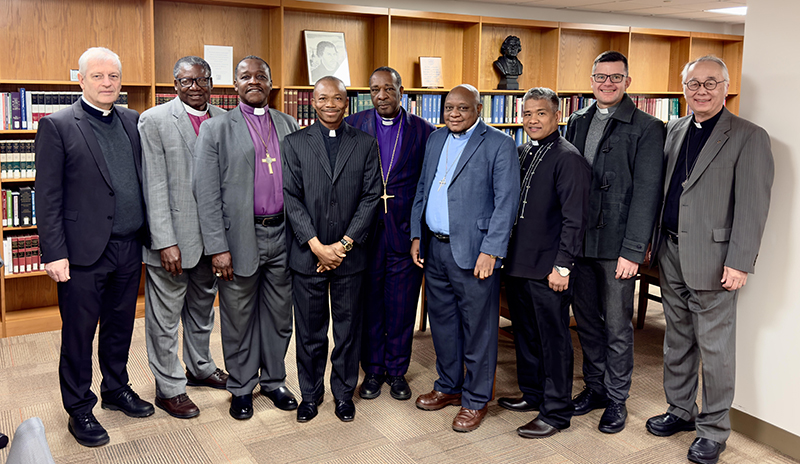
USA – Church leaders from seven Lutheran church bodies and dioceses in six countries in Africa and Asia travelled to Fort Wayne, Indiana, for another session of the International Lutheran Council’s (ILC) Lutheran Leadership Development Program (LLDP) from March 3-14, 2025.
Lutheran Missiology with ILC General Secretary Schulz
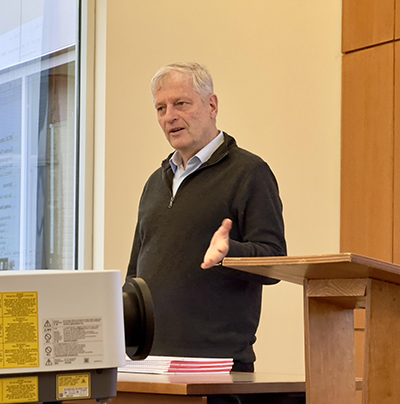
The first week was spent diving into Lutheran missiology, with the ILC’s General Secretary Rev. Dr. Detlev Schulz ably guiding participants in exploring and understanding the width and the depth of proper missiological thinking and practice from a biblical and confessional foundation. Dr. Schulz passionately taught the class with many examples and with his own stories as a former missionary in Botswana. “Where are we in mission in our churches?” he challenged the participants, and exhorted them to engage in all “four levels” of missiology: martyria, koinonia, leiturgia, and diakonia both intentionally and directly. He also wanted participants to cultivate the proper missiological reflections.
Dr. Schulz explained that the majority of Lutheran churches around the world have shifted their main focus in missions from justification of sinners before God to a socio-political agenda. In such a context, Dr. Schulz insisted, it is all the more crucial to stay focused on the delivery of forgiveness that goes with the proper understanding of the pastoral office, the royal priesthood, and ecclesiology. Speaking from a missiological perspective, he stressed the vitality that residential seminaries provide, so that pastors and missionaries are sufficiently trained in both Lutheran theology and missiological reflections and practice.
Students appreciated Dr. Schulz’s teaching very much. “This course was very important for me,” one said. “I learned especially the place of missiology in theology in the contemporary discussions.” Other comments included: “God’s mission is the at the heart of Lutheran theology” and “It provided a great help for my church body.”
The Office of the Holy Ministry with LLDP Director Masaki
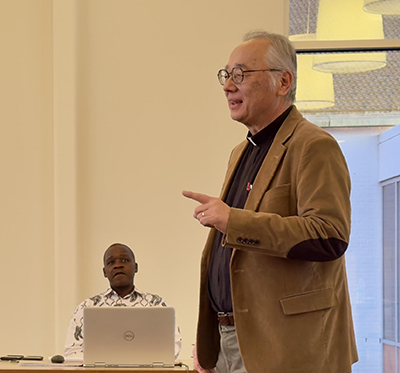
The first week’s reflections on Lutheran missiology naturally flowed into the second week’s study of the doctrine of the Office of the Holy Ministry, taught by LLDP Director Rev. Dr. Naomichi Masaki. This is because our Lord has instituted the office for the delivery of forgiveness of sins and not for service in the left-hand kingdom. We know that in theology all articles of doctrine are interrelated in an organic whole. The improper practice of missions indicates a prior unsound confession of the Chief Article in the Scripture. Confusion in the area of the Office of the Holy Ministry is not unrelated to misunderstanding in missiology.
For the gathered Lutheran leaders, it was very important to confess the pastoral office as instituted by our Lord instead of accepting the notion popular among neighbouring church bodies that appear to be flourishing. For this reason, LLDP students stuck to Scripture and the Book of Concord in studying the doctrine of the Office of the Holy Ministry, beginning with the Lord’s mandating words, continuing with apostolic instructions in the Epistles, and observing the life of the first century church in the Book of Acts. The entire Book of Concord was also examined concerning the pastoral office. The class took a careful look at a variety of nomenclatures applied to the office in the New Testament. Contemporary issues such as priesthood of all believers, lay ministry, and women’s ordination were discussed as well.
Participants feedback included: “This course let me evaluate my misunderstanding of the pastoral office, making me aware where that had come from;” “The Office of the Holy Ministry is the heart of this program. For this reason a church without a good knowledge and understanding of this course is liable to false doctrine that endangers the church;” “This course is very crucial for the church, particularly leaders, in this challenging time. I strongly recommend that this course be taught to all Lutherans, not only bishops and pastors. I appreciated that all issues on the ministry have been thoroughly discussed on the basis of the Scripture and the Book of Concord;” and “It is very helpful to look at the Office of the Holy Ministry not from a legalistic point of view, but from a Gospel perspective.”
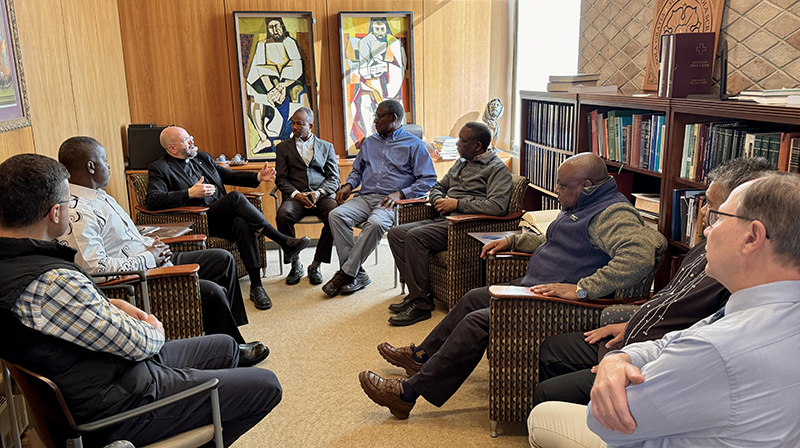
During the March session, participants enjoyed the hospitalities of several faculty from Concordia Theological Seminary in Fort Wayne (CTSFW) who graciously opened their homes for dinner and fellowship. On the Sunday between the two courses, the group visited St. John Evangelical Lutheran Church in Bingen/Decatur, Indiana, and shared with the members there various stories from their home church bodies and countries. In this way, they enriched the lives of local faithful Lutherans, even as they were themselves recipients of good teaching in the LLDP classes.
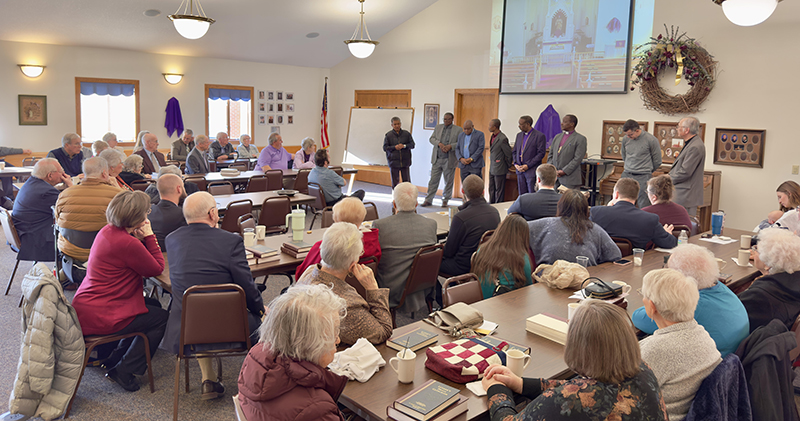
Next Session
“It was another great two weeks,” commented Dr. Masaki, LLDP Director, concerning the March session. “We pray that the church bodies represented by the participants may be richly blessed by our Lord, so that what they acquired in the areas of mission and ministry bear much fruit in their ecclesial contexts.”
Another LLDP session was scheduled to take place at CTSFW in August 2025 with a particular focus on liturgy, hymns, and communion practices—at which time the program anticipated celebrating an additional three graduates.
You are invited to support the work of the LLDP by making a donation online. You can also mail a donation by cheque to:
International Lutheran Council
P.O. Box 10149
Fort Wayne, Indiana 46850 USA
———————
